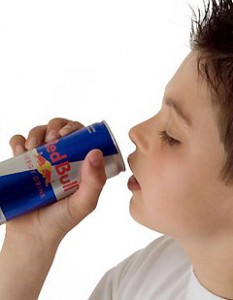Some people like the caffeine fix in the form of coffee, cola drinks or chocolate. The kick of 36 mg of caffeine in one can of cola is enough of a wake up call and can interfere with falling asleep at night. In the meantime however, some soft drinks appeal to the crowd that thinks that more must be better. One of the concoctions, Red Bull, which came originally from Austria, has managed to be approved by Health Canada as a “natural health product”.
There are a few strings attached: the label must carry a warning that the drink is not recommended for children and breast-feeding women. The drink should not be mixed with alcohol, and no more than 500 ml (two cans) should be consumed per day. The European Commission on Food Safety had closely scrutinized it, and the product is in fact banned in France, Denmark, and Norway, as the authorities are not sure about the long-term effect of the ingredients, namely taurine, caffeine and glucuronolactone.
The problem remains that any kid can have access to Red Bull at the corner store. No one is watching how much is consumed. These drinks have become hot seller-last year alone 80,000 L of “energy drinks” were sold in Canada alone. Red Bull packs a significant 80 mg of caffeine, “Guru” comes in with 125 mg of caffeine, and it is even sold in school cafeterias in Montreal.
A sports nutritionist observed also, that it has become a popular practice among certain athletes to down three or full cans of Red Bull and in addition combine this whopping dose with a product” Hot Rox”, which delivers another jolt of 1000 mg caffeine. Exaggerated adrenaline rush can be the perfect recipe for injury, insomnia and poor recovery.
The breweries seem to want a market slice too, as Labatt’s new “Shok” sports more alcohol (6.9%) and 60 mg of caffeine in addition. Molson”s “Kick” delivers 55 mg caffeine and 5% alcohol.
Doctors should be on the watch for caffeine overdoses and also the resulting withdrawal symptoms. Transient behavior changes, irritability, nervousness and anxiety are on the list for the first, lack of energy and inability to concentrate are the effects of withdrawal. Reaching for stimulants also give a false sense of energy is no substitute for energy from real food. And last not least the label saying “all natural” does not guarantee safety.
Reference: The Medical Post, April 12, 2005, page 21
Last edited December 7, 2012






